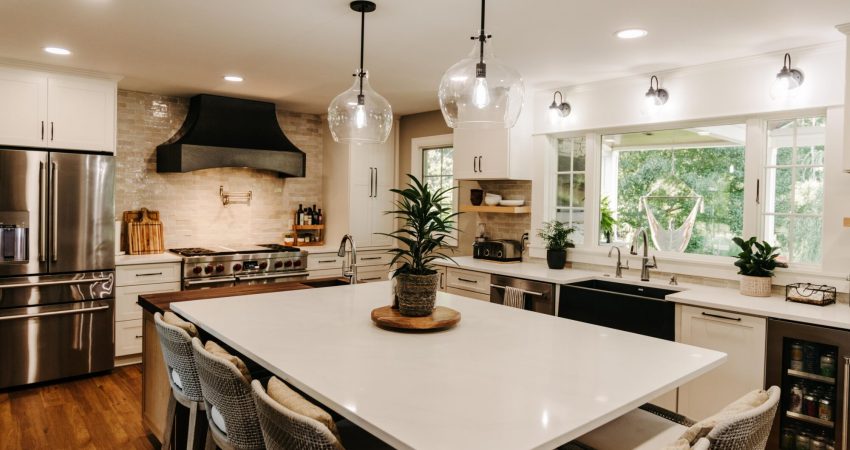In the realm of kitchen renovations, countertops stand as a pivotal investment, capable of transforming your home’s aesthetics and ambiance in an instant. With a number of countertop options at your disposal, choosing the right material can be a daunting task. To guide you through this journey, let’s dig deep into the pros and cons, and essential considerations, of each.
First, the almighty granite – the quintessential choice for those seeking durability and longevity. Granite’s resilience against heat and scratches makes it a practical option for busy kitchens. Its diverse range of colors and patterns allows you to personalize your space, while adding significant value to your home. However, the hefty price tag and the need for regular sealing to prevent staining may deter some homeowners. Installing granite countertops is also best left to the pros due to their substantial weight.
Next, let’s consider quartz countertops, a non-porous and stain-resistant material. Quartz offers effortless cleaning and long-lasting performance, making it a favorite among homeowners. Its wide array of colors and patterns provides ample design flexibility. While quartz countertops tend to be more expensive than granite, they compensate with their exceptional durability. It’s worth noting that quartz is not as heat-resistant as granite, and seams may be noticeable in some installations.
Marble countertops exude elegance and sophistication, instantly elevating the aesthetics of any kitchen. Their heat and scratch resistance make them practical choices, provided they are properly sealed. However, marble’s susceptibility to acidic substances and the need for regular sealing may require extra care and maintenance.
Butcher block countertops bring warmth and inviting charm to kitchens. Their ease of repair and maintenance makes them a functional option. The ability to refinish butcher block countertops allows for a refreshing change of look whenever desired. Affordability sets butcher block apart from other countertop materials. However, its durability falls short compared to granite or quartz. Regular oiling is necessary to prevent drying and cracking, and sharp objects can easily scratch or damage the surface – but then again, that will just add to the character and charm of this earthy choice.
Laminate countertops offer a budget-friendly alternative. Their affordability and diverse range of colors and patterns make them a popular choice for cost-conscious homeowners. Laminate countertops are easy to clean and resistant to heat and scratches, ensuring practicality in everyday use. Nevertheless, their durability is not on par with other materials, and exposure to water without proper sealing can lead to damage. Visible seams may also be a consideration.
Concrete countertops provide a unique and customizable option for homeowners. Their durability, heat resistance, and scratch resistance make them a robust choice. Concrete’s versatility allows it to be cast into various shapes and sizes, accommodating diverse design preferences. On the downside, concrete countertops can be expensive and require sealing to prevent staining. And repairing damaged concrete countertops can be challenging.
Ultimately, the best countertop for your kitchen should align with your personal style, budget, and lifestyle. Factors such as durability, maintenance requirements, and design should be carefully considered when making your decision. With the right countertop, your kitchen will not only become a functional space but also a stunning focal point that reflects your taste and personality.
